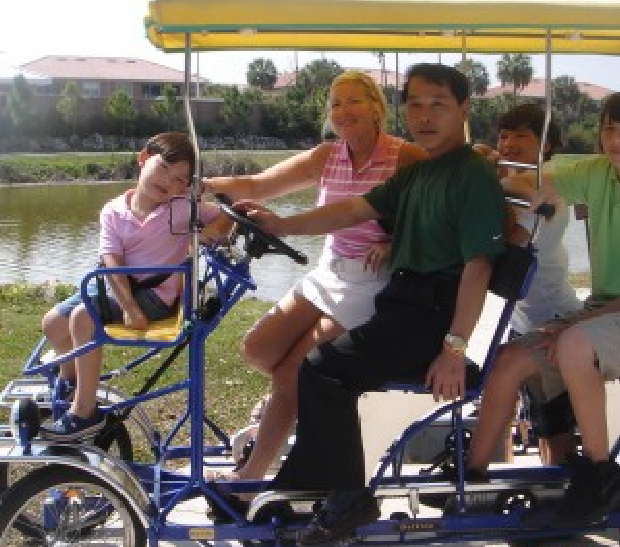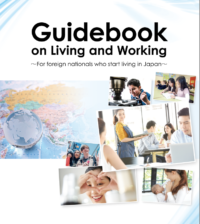- Belgium comes to Yamashita Park
- Residential Villa in Phuket Entices Remote Workers With Long-Stay Rates
- Rare pieces of French glass art at the Mirai Museum of Art
- Feast on fresh fish and seafood at the 2024 ‘Sakana’ Festival
- Would you like to ride in a Louis Vuitton gondola lift?
- Naked Snow Aquarium
- Festive lights at Yomiuriland will get you feeling the holiday vibes
Tokyo mom’s earthquake experience
It was the afternoon of March 11, 2011. I had just waved goodbye to the parents and preschoolers after a typical day at the school I run in Tokyo. I was working on my PC when I felt the building shake and groan to my surprise. At first, it seemed like weak tremors similar to previous quakes I have experienced. It was only when the trembling intensified, swayed the building back and forth and caused the glass walls in my office to vibrate, that the thought this was no ordinary earthquake, finally sank in. As the prolonged shaking ensued, I jumped up and ran towards the classroom to look for the strongest support frame of the building I could find or a table I could stay under for support. My first thought was, “This is the big one. I am going to be buried in a heap of rubble, and I didn’t speak to the boys this morning!“ I burst into tears as the terrifying minutes of the big earthquake unfolded. My family is in Florida where my three boys, Kazuma, Kai and Kian, go to school.
The boys were born and raised in Tokyo but moved to the United States two and a half years ago to continue their studies while I look after my business in Japan. It is a unique arrangement that requires a little sacrifice from each family member, but we all know it is for the sake of the kids’ education. Fortunately, my business allows me to make it up to the boys with my frequent trips home.
Fast forward – the big quake ended followed by 70 or so scary aftershocks that same day. Minutes after the tremor, both cell and landline phones immediately went out of service. The sadness of not having another opportunity to see, hug, and kiss my boys had me seriously concerned. I couldn’t phone to tell them what had happened and that I was okay. I was equally concerned about the safety, security and well-being of my many “other” children, who had just left with their parents and caregivers. Being unable to reach anyone via phone added to the emotional strain. As soon as I turned on the TV to learn the details of what had just happened, alarming live reports showed the tsunami accompanied by commentary that thousands of bodies were swept away in Sendai. Seeing the power and destruction of the water was absolutely heart-wrenching. I continued to think of my children, both at home and from my school.
Later that day, news leaked of the nuclear power plant in Fukushima, 250 kilometers away from Tokyo, threatening to spew harmful radiation. Trains had already stopped even in Tokyo, and the roads were full of foot traffic – people trying to figure out how to get home who began walking, even if that meant for hours. Food immediately ran out at the shops and international schools were announcing temporary closures.
My underlying thought, the one that made my heart palpitate was, “Are we really in imminent danger?” We could be; but there was no indication that we were not either. “What does this mean for Japan?” Most importantly, “what does this mean to me and my family?” With the pain I felt on my shoulders and the shuddering quaking tremble, I knew no other better release than flying to my boys sooner rather than later.
Luckily, I already had a ticket to the U.S. for use on March 17 so I made arrangements to leave earlier. I called on the 12th, and couldn’t get out before the 15th. The aftershocks were so much stronger than I had anticipated; it was still so very scary. I did not sleep a full night, and the news coverage was on the entire day. The day before I was to leave, I found out that the express airport train was not running, and the limousine bus did not have confirmed schedule. Ultimately, I had no choice but to take a taxi to the airport to begin my journey home to my boys. I had short and shallow breaths until the doors on the plane closed and we were airborne! Thirty minutes into the flight, I slept – for almost all of the flight.
This experience brought home for me the importance of a struggle I have had for many months. I love my children, and I know that they need more “mommy time” than I am able to give them today. With the same amount of dedication to my own kids though I firmly believe that my students require the same love and attention as my own kids and for their sake, I need to make the right choices. For several months now, I had been seeking to find someone who can take over my day-to-day role at my school while still allowing me to drive the direction of the school and be a positive influence in the lives of my students. As a Montessori School, this requires both dedication to the children, as well as a profound respect for the developmental approach of the Montessori method. This combination of business acumen and total dedication to the children and their futures, is a skill-set that continues to prove difficult to find anywhere, let alone Tokyo.
Although I run my own preschool in Tokyo, I have a responsibility to my children who are dual citizens to provide them with an education that takes the best of both cultures. Today, and at the time of the earthquake, my boys are in the U.S. as a result of my family’s plans to accomplish this. Our decision was challenging as my husband and I had different ideas on how to provide the right mix of Japanese and American education for them. Initially, my husband and I had very different views as to what style of education to give them. He thought preschool and kindergarten in an international school, followed by the neighborhood public elementary school because it was important for the children to grow up with their peers in the neighborhood. I wanted them to go to an international school for the duration; after all they were bilingual and bi-cultural children being raised in a diverse community. I thought studying Japanese in an international school would be enough. As a preschool/kindergarten/ESL teacher, I wanted my own children to have the best foundation that I could provide, to mold them into confident, completely bilingual individuals. I also felt very strongly about the children speaking only English exclusively with me, and Japanese to my husband, without mixing either language. I sought advice from multiple language experts who recommended early education in English, primary education for at least three years in Japanese, then English from there. I then began making plans for their education. I decided to send them to a private Japanese kindergarten, which had a strong focus on academics. Since they were with me most of the time, English came to them naturally. I also wanted them to have the proper basics in Japanese, and to expand their vocabulary and learn to write in hiragana and katakana.
To make the long story short, after a great deal of research and talking with friends, parents and educators, I was planning to send my boys to the local school until my second son finished the third grade, then we would move back to the US, and continue their education there. We made the move two and a half years ago. It proved to be quite challenging to make all of the arrangements to move my house, family and keep my school functioning as usual. I decided to handle the move, acclimate the boys first, and then decide what to do about my school. Luckily we live very close to my parents, and they continue to play active roles in the boys’ lives. With that sense of security, and the convenience of Skype, seeing the boys’ faces and speaking with them every day, I could then continue to grow my business.
The earthquake and the events that occurred between the 11th and my departure on the 15th helped me to realize that not only do my boys need a bit more of my time in person, but I need more of their time. Meanwhile, as the community that represents my customer base is struggling to grasp the ultimate dynamics of the situation in Japan, I realize that I provide comfort to children in the form of a secure environment where they have a “routine” and can cope with the types of stress these situations create even for them. These two positions are not exclusive as I have been actively engaged in a search to find the right person to take over my day-to-day position at my school, which will enable me to both spend more time with my children in the U.S. and continue to lead my school and my students to brighter futures.
I have been in Japan for almost 22 years, and have experienced many earthquakes. I have my own personal earthquake kit, as well as one for the school. We practice drills on a regular school year basis, however, as prepared as I am, I never became used to the tremors.
This earthquake brought about the realization that you can never be too prepared.
Jeanne Shimazaki is the owner of Montessori Friends International School.
















